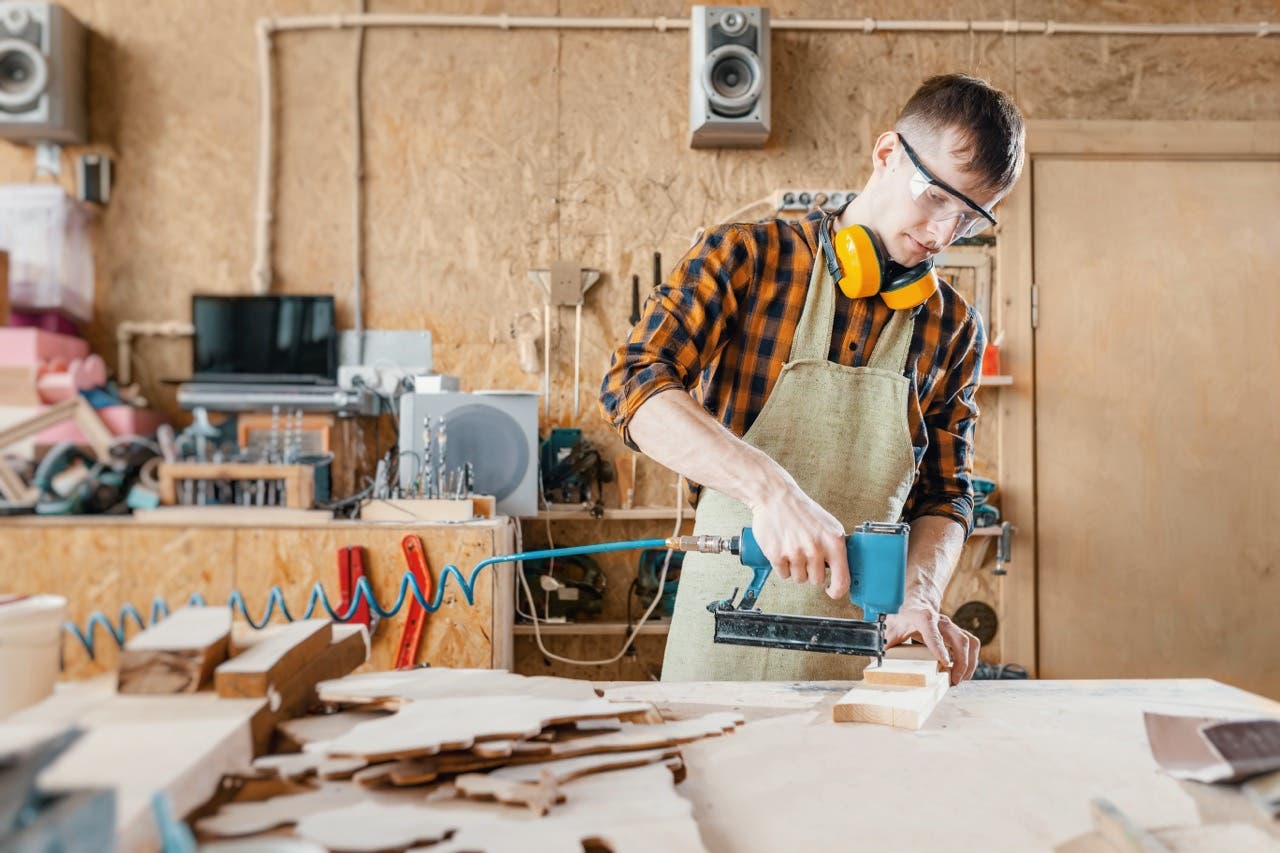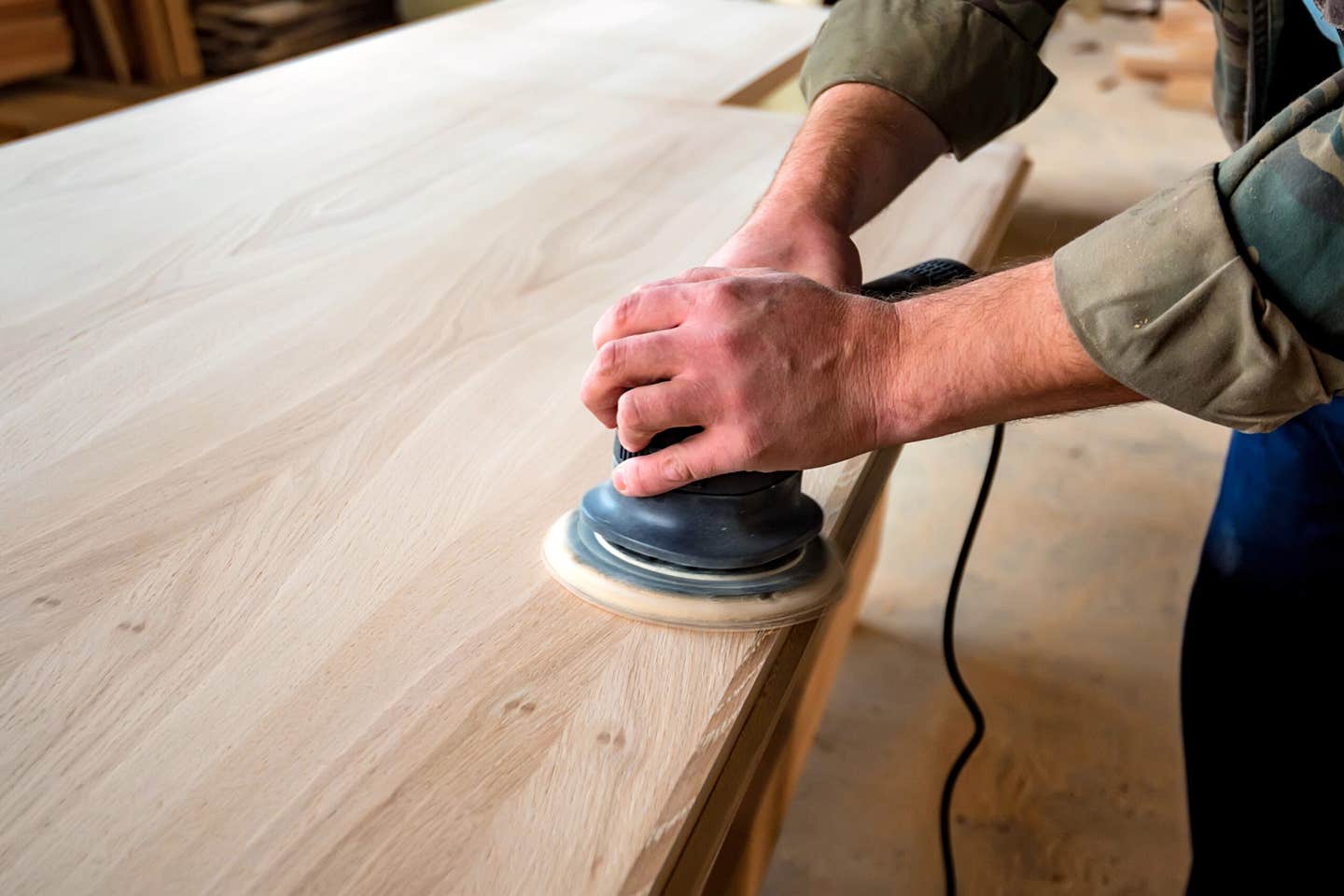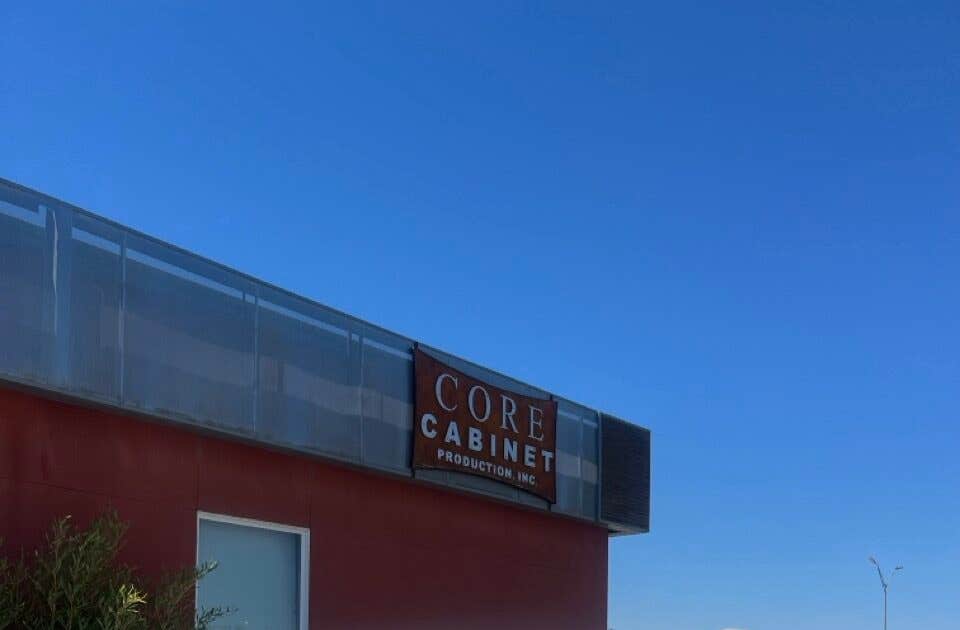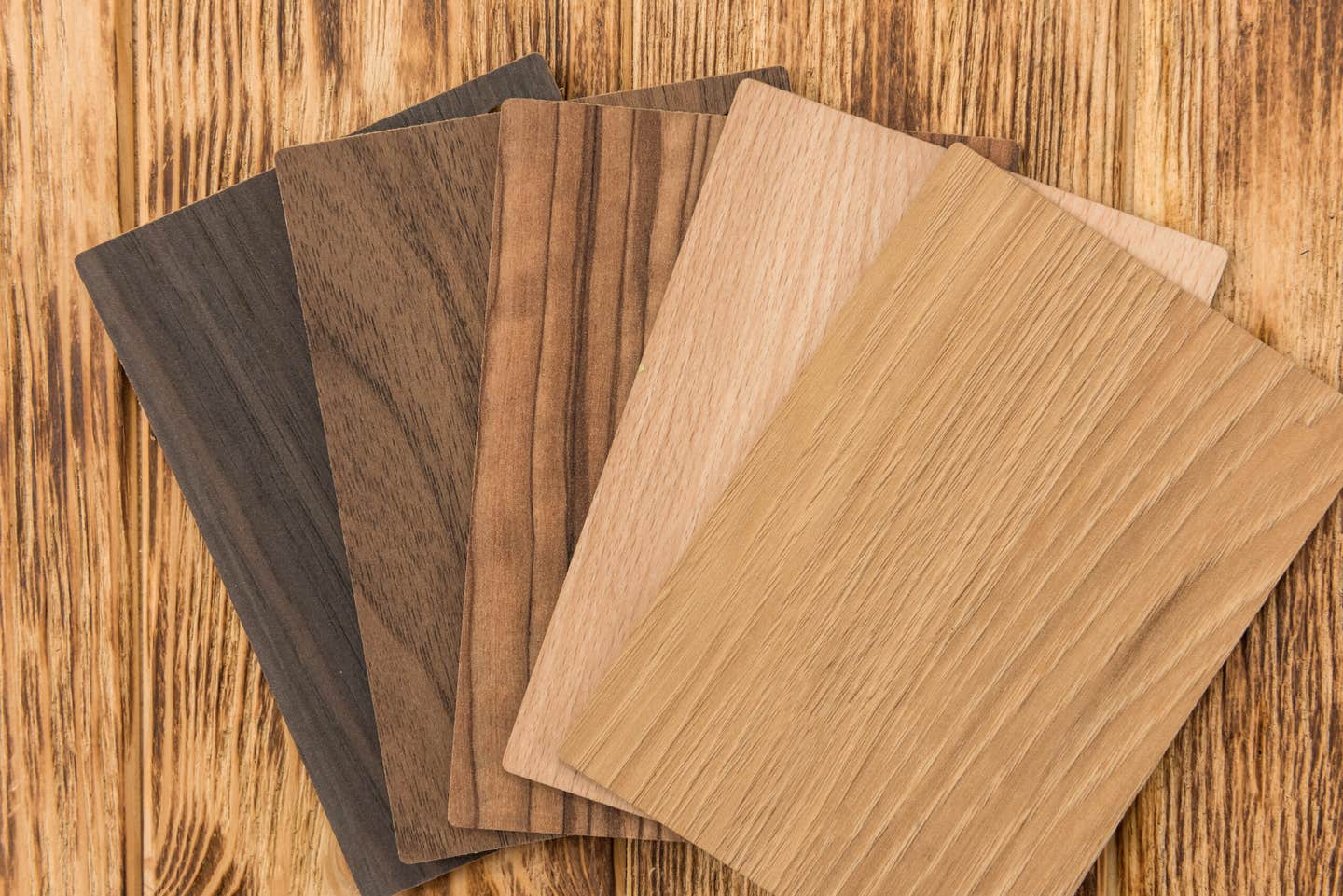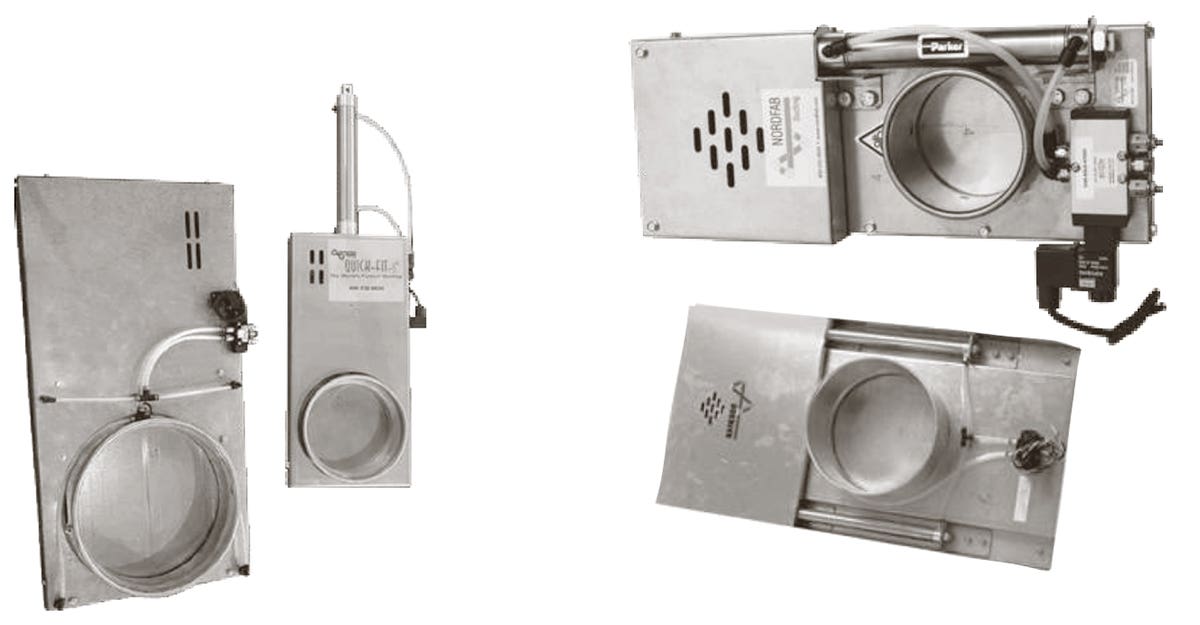Keeping it all in the family
For Russell Hudson, life doesn’t get much better than getting out of bed in the morning, having breakfast in the custom kitchen he built, walking through a room filled with…
For Russell Hudson, life doesn't get much better than getting out of bed in the morning, having breakfast in the custom kitchen he built, walking through a room filled with furniture he made and then down a flight of stairs to his shop, Hudson Cabinetmaking, in Carmel, N.Y. Once there, he enters an entirely different world to do what he loves - creating custom designs and assisting his two sons with the woodworking process.
"Quite frankly, our love is to do very high-end, well-articulated stuff, whether it is screwed to the wall or not. We really love to do the stuff that someone is willing to pay us to do that is really high-end work, which you see less and less of. I love it and that is why I do what I do. And that is why my sons are still with me," says Hudson.
Hudson was once a filmmaker and worked for an advertising agency in New York City. But he grew tired of the "crazies of Madison Avenue" and started Hudson Cabinetmaking in the early 1980s.
"When I came home from the advertising agency, having worked so many hours on Madison Avenue, I would often go down to the basement and it was actually my way of getting sane again," says Hudson.
Design approach
Hudson's greatest strength lies in his ability to visualize projects and put them on paper. He doesn't use any CAD programs, but his 3-D renderings are phenomenal. The majority of his work is built-ins.
"I'm really good at interior designing and one of my sons is particularly adept at knowing the proportions," Hudson says. "I have the ability to visualize things in the mind's eye. Quite often, a client is talking to me and I'm looking up and they're wondering why I'm looking away, but I'm looking because I can kind of picture things, like yeah, the arch will be there over the top and I can kind of picture what we are talking about. Being especially conscious of the ability to visualize is a big part of the game. But you have to foster that."
Every project he takes on starts with a hand-rendered drawing. He does a quick rough sketch of it and then e-mails it to the potential client. If they like it, he'll give an estimate and then spend nearly two hours putting together a detailed drawing with three dimensions from an angle, not head on.
"I don't charge anything for that because we land between three or four out of five people that I visit. And, yes, there have been times when I've designed something and someone else builds it because they love my designs so much, but are willing to do it for half the amount. You put yourself out a little bit more and let the universe take care of you. It's hard, but I don't want to be a lawyer."
Family affair
Hudson works with his two sons, Russell Jr. and Brian. Both have been working with their dad for more than 10 years. Quite often, working with family ends up as a disaster, but in the case of the Hudson family, things seem to be just fine.
"As I get to be 60 and they're in their 30s, I'm so grateful that I have them. I can let them go with a client now. I can't lift up 4x8 sheets for eight hours straight anymore because the next day I'll be on my back. Eventually I'm going to be the guy who comes in twice a week and sweeps a little bit and it will be their place."
Hudson is a firm believer in face-frame cabinets with inset doors. He's been doing it for years.
"The whole game is articulation," he says. "No one wants to buy a locker room from you. You got to have some depth. It needs to look handmade and have some soul to it. All they are is boxes with molding on them, so how do you do this so it has some character? We like to build face-frame stuff all the time. Instead of bringing it flat to the face, now we set them 1/4" back because it gives them even more texture. I bet we do 19 out of 20 inset."
For face frames, Hudson uses veneered furniture-grade plys for all side walls, backs, floors and shelves. He says they will stay nice and flat forever. Anything that can be hit - outside corners, the face frame - is made out of solids.
Hudson estimates about two-thirds of what he produces ends up being painted.
"We use poplar for all of our face-frame stuff and these days you go with maple prefinished for interiors, which makes sense money-wise. When you show people the painted piece and then they open it up, they go, 'Oh, this is the real thing' instead of particleboard."
He cuts everything 1" rough and mills it in his shop. He can't stress enough how everything has to be as true as it can be.
"The only way to make a cabinet is to have all your parts dead-on square so that when you screw it together, it comes up dead square and the door fits right inside it.
"I now get all solid stock from Leonard's Lumber in Connecticut. We buy 800/bf every couple months from them because we get the poplar a lot. We don't use pine here; that's silly unless someone wants the pine look. And we never use oak because I personally hate oak. It looks like every cheap condominium from the 1970s. We probably use cherry second [most] and we use maple often, especially if we don't know how they're going to stain the thing. And some walnut. We go with Atlantic Plywood for our plywood."
Back for more
Hudson Cabinetmaking is 100 percent high-end residential with most of the work coming from the wealthy suburbs of New York City: Westchester County (N.Y.), Chappaqua and Armonk (N.Y.), and Ridgefield and Greenwich (Conn.). Repeat business, the sign of a satisfied customer, is the norm.
"The second time we do something for someone, they have never looked at anyone else. It's word of mouth and when people see their neighbor's stuff and they say they like this guy, he was a nice guy and they were polite and everything. They did it when they said they were going to do it. So that really helps."
Hudson subs out his finishing work and countertops, but is adamant about doing his own installation.
"If you really like doing this, you couldn't stand to have someone else do the installation. I want to see it done. There is a hit you get when you stand back and look at the whole thing you installed and say, 'Bang!' I mean part of what I do here is because I love doing this; I love the way it turns out. Seeing it go from conception to a completed project so many times - that's the aha [moment]."
Hudson works with interior designers and contractors, but rarely architects.
"I must tell you, in the last year-and-a-half, I have gone through the phone book and called every architect in there, but one out of every four or five wanted to know if I had any work for them. That's happened with designers, too; everyone is starving."
Tough stretch
As with most professional shops, the last three years have been difficult because of the slowdown in the economy. It has prompted several changes at Hudson Cabinetmaking, especially in the bid phase.
"We had to do something because you could hear crickets in the shop; there was just nothing going on," Hudson laments. "For four or five months, we were bidding the way we always had and weren't even close. The [competition] would come in at $28,000 and we were at $45,000. We've discussed going with prebuilt cabinets, but in the end we're just settling for less [profit]. My sons are not making a whole lot of money these days and sometimes I make $125 a day. It still beats the [heck] out of nothing a day."
Hudson says it has been really rough and scary for two straight years. Previously he has had periods of three weeks or even two months when things were bad, but never two years.
"And so we had to go all the way out to the Hamptons and build a kitchen that would have been every bit short of $50,000 and do it for $30,000. I was down to $37,000 and they said 'Nope.' And I couldn't argue. I don't have the money or other work to say I'm not going to do this. So, tough, get there and make only $200 a day and do whatever you have to do and at least you'll keep the guys working and you won't be biting your nails worrying. At least you'll be actively doing something. It was that bad."
A believer
But the economic climate for Hudson has improved somewhat during the last three or four months. Things are far from what they were five years ago, but there definitely seems to be a slight uptick in business and inquiries. And, after 28 years in the business, Hudson remains optimistic.
"I'm going to keep believing in this. If you get three weeks or even two months of being kind of negative about stuff and it gets better and you say OK, I came out of that little period where I wasn't feeling too great about everything. But two years? I'm not out of it yet; I'm still looking over my shoulder. I'm working so hard now that I am driving traffic to the website to make sure it looks wonderful. I want to make sure I'm booked a few months out."
Contact: Hudson Cabinetmaking Inc., 84 Glenvue Dr., Carmel, NY 10512. Tel: 845-225-2967. www.hudsoncabinetmaking.com
This article originally appeared in the January 2011 issue.



